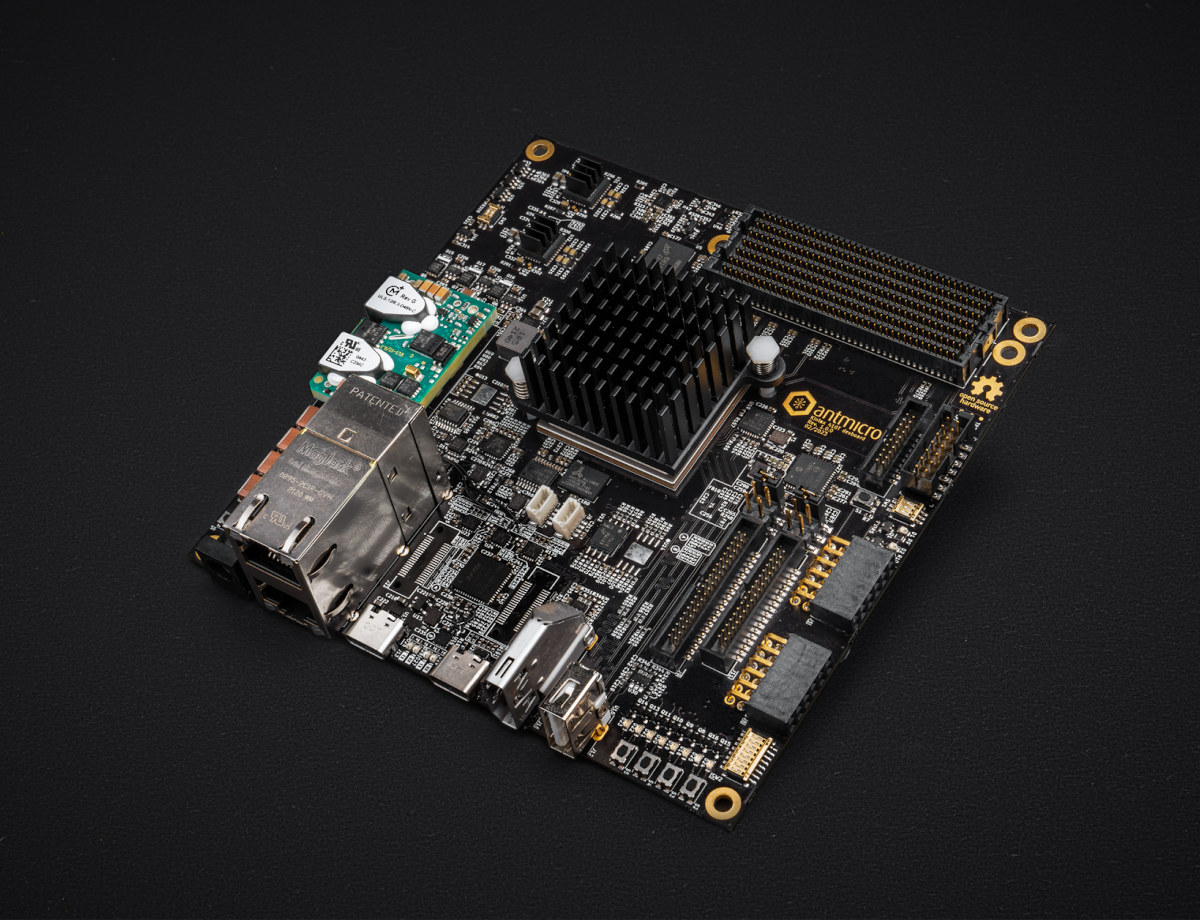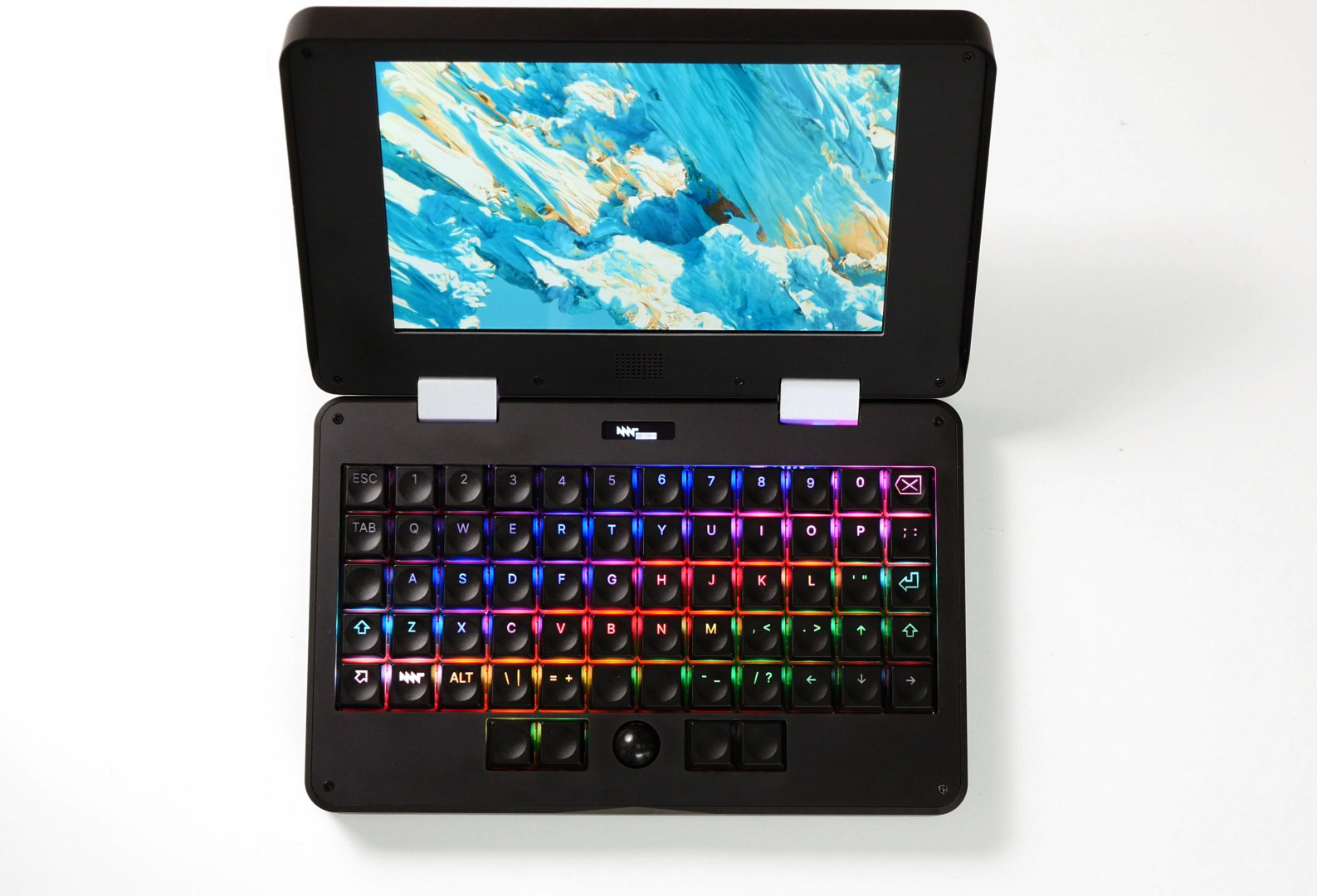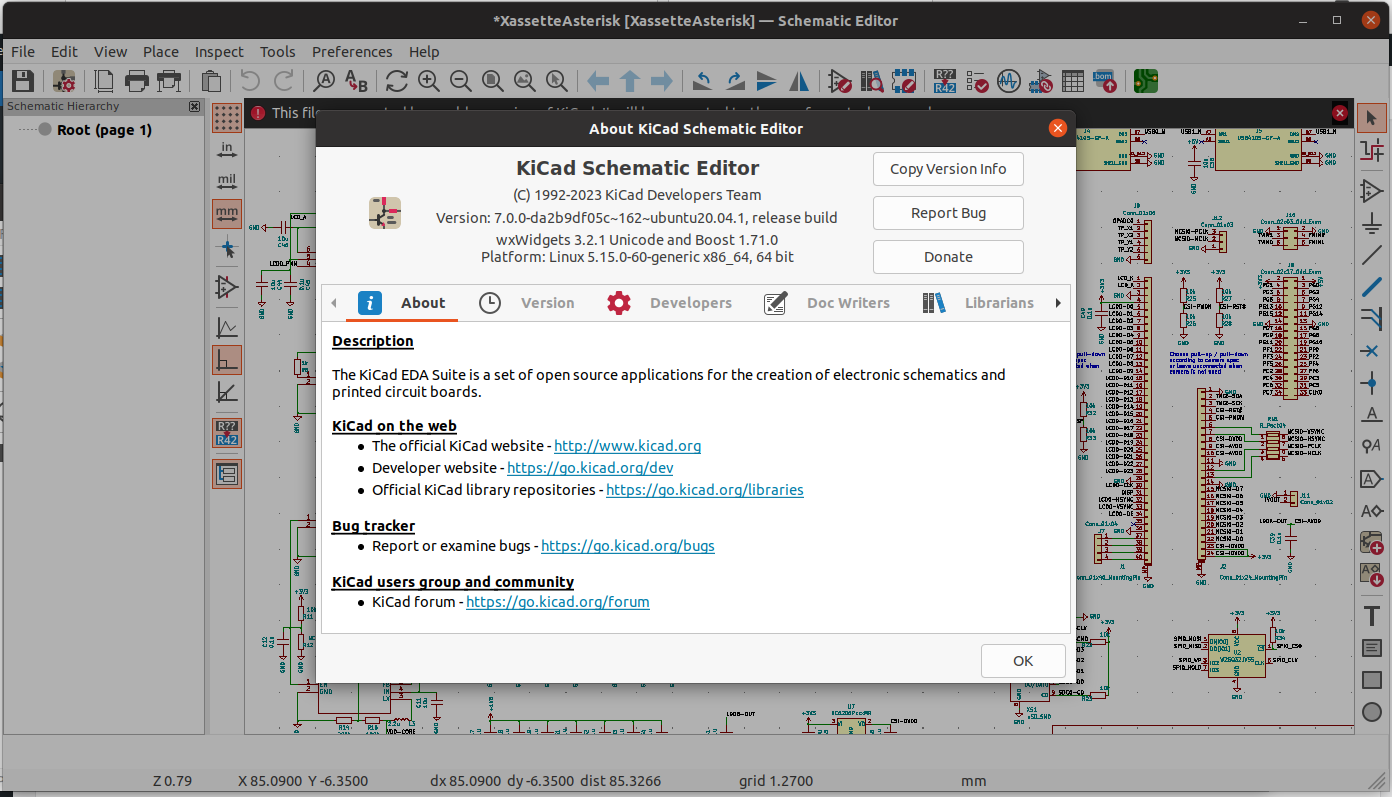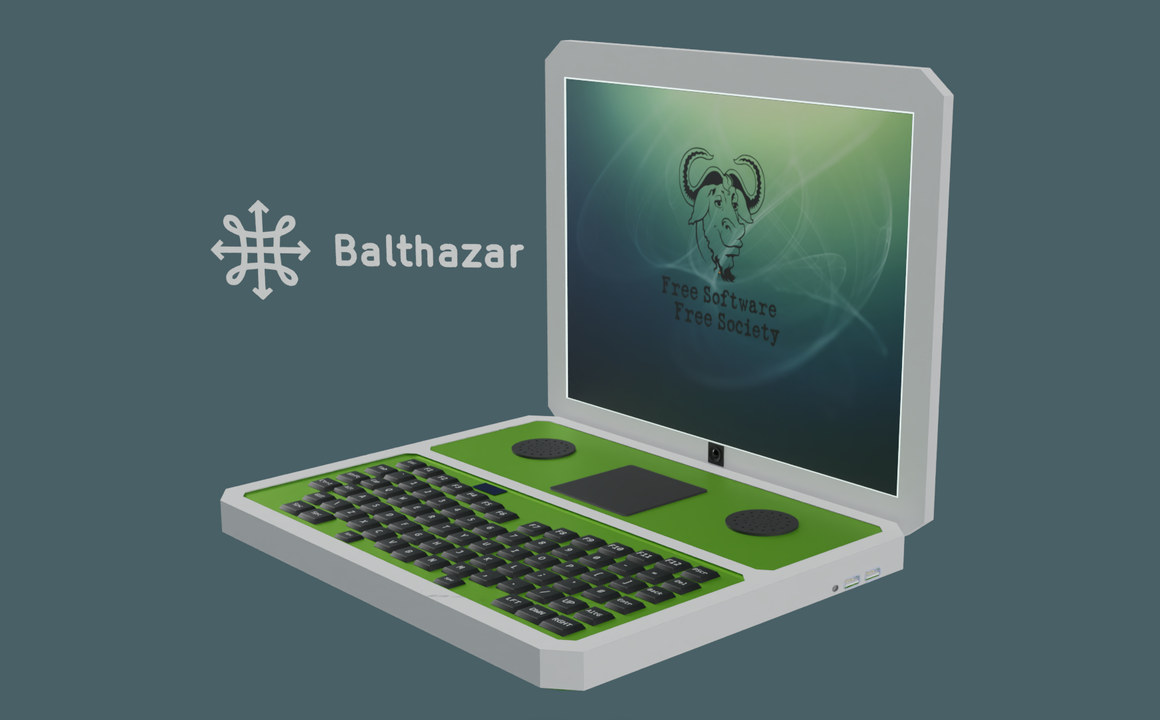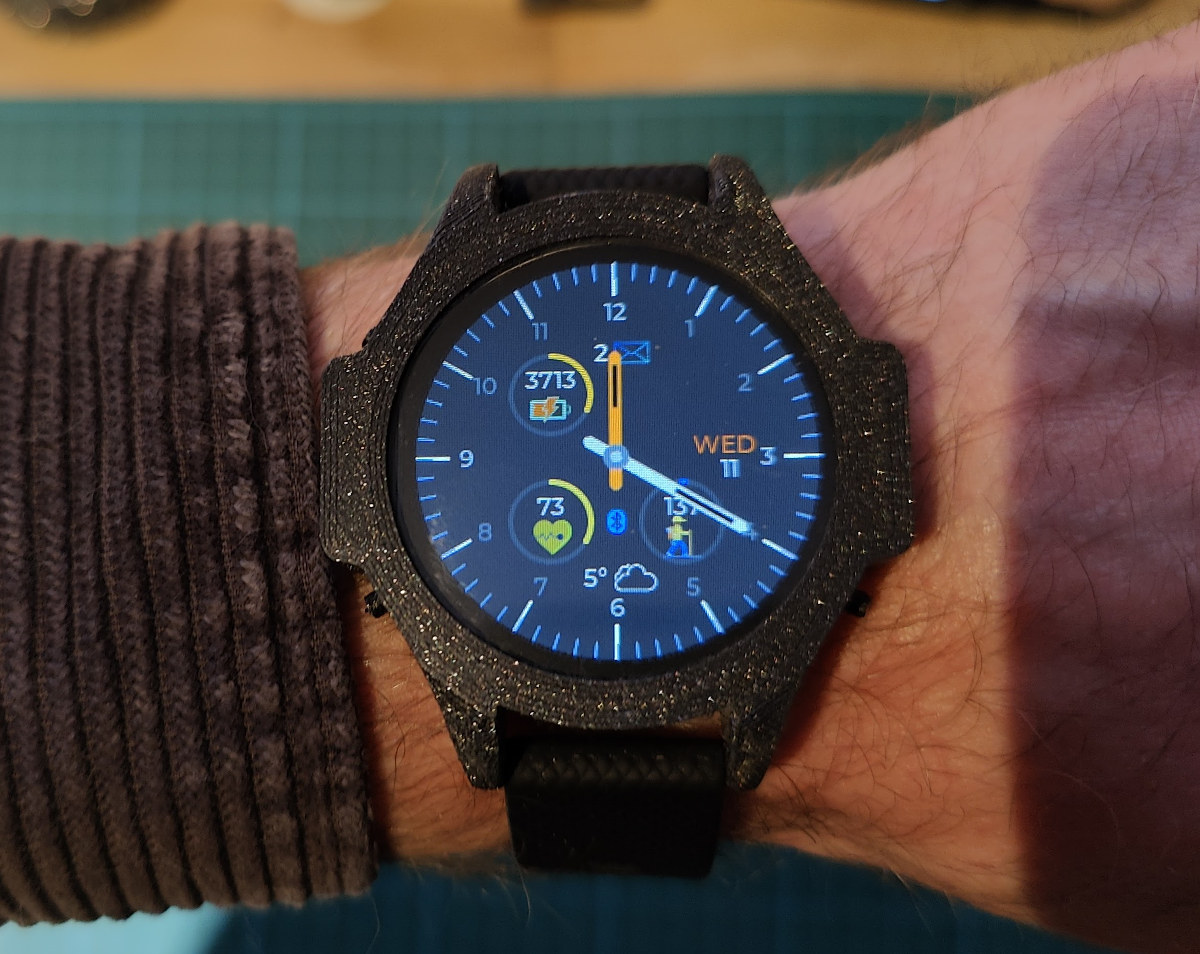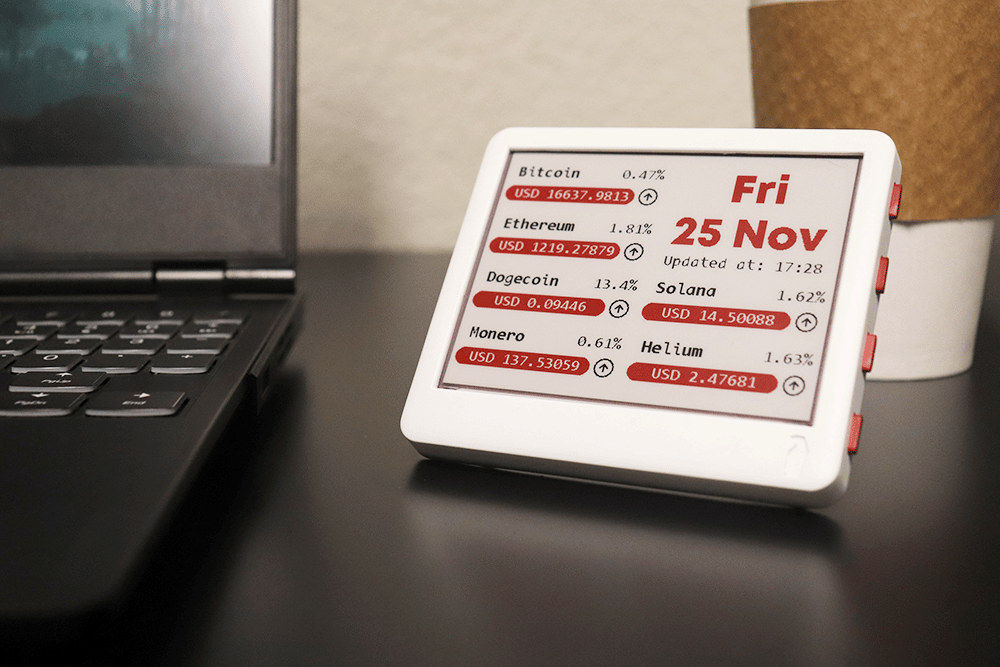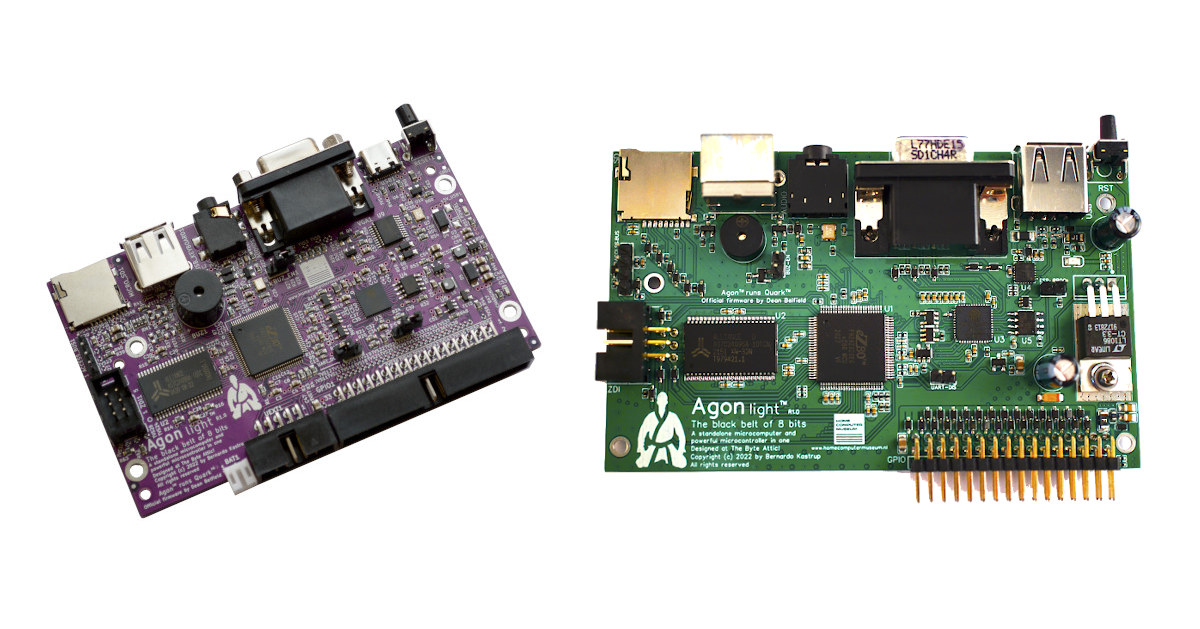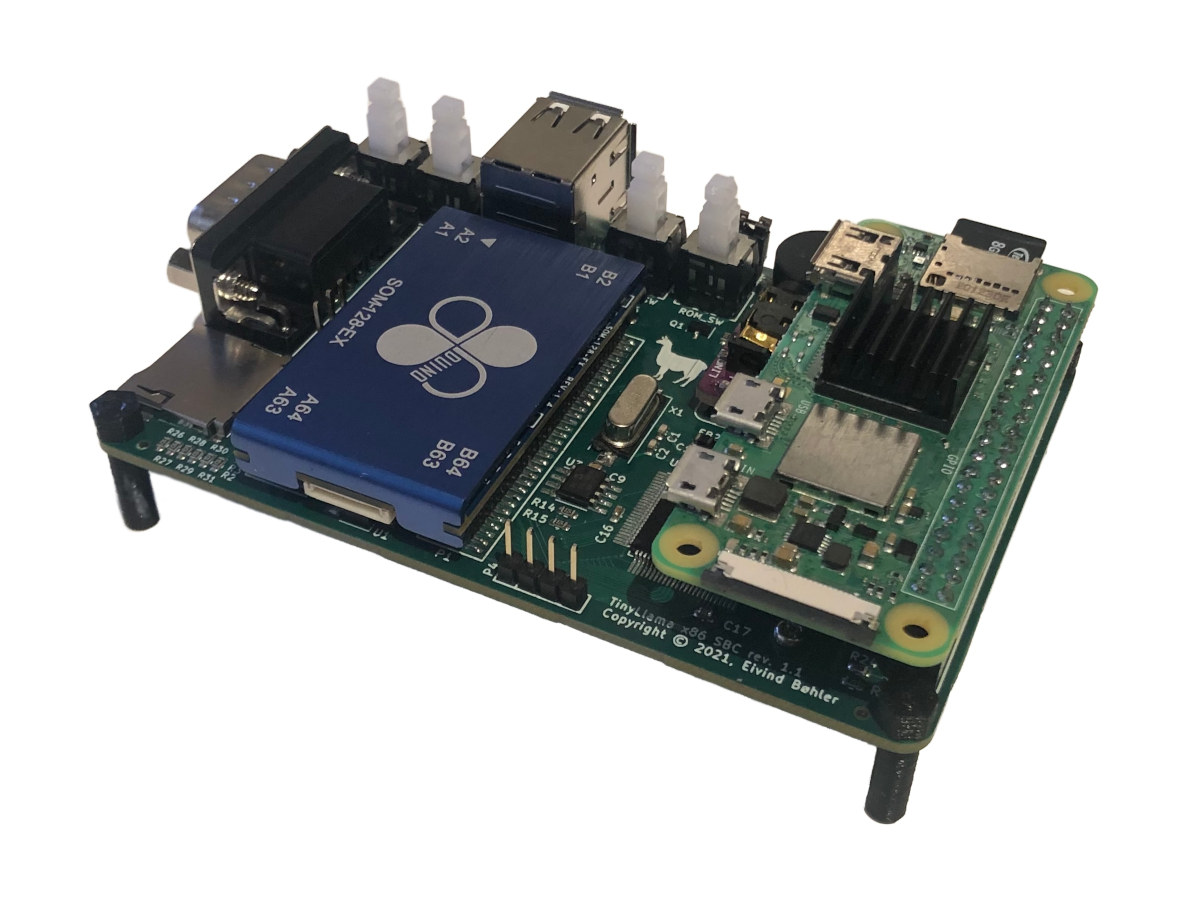Antmicro has designed an open hardware AMD Xilinx Kintex-7 K410T FPGA development board in KiCad 6 mostly to synthesize custom RISC-V-based processing platforms and work on the OpenTitan Root of Trust project. Separately, the company has also launched an open hardware portal sharing some of the KiCad and Blender designs they’ve worked on over the years. Open-source hardware AMD Xilinx Kintex-7 K410T development board Key features and specifications: FPGA – AMD-Xilinx Kintex-7 K410T FPGA with 400K logic cells, 16 Gigabit transceivers operating at 12.5Gb/s. System Memory – 512MB of DDR3L memory, 8MB of SRAM memory Storage – 32MB (256Mbit) of (Q)SPI NOR flash, assembly option for 2x QSPI flash, microSD card slot Video Output – HDMI port Networking – 1x Gigabit Ethernet RJ45 port, 1x 10/100M Ethernet port USB USB 2.0 Type-A host connector USB Type-C connector for FTDI JTAG and debug Expansions 2x PMOD connectors FMC+ connector with PCIe […]
MNT Pocket Reform open-source 7-inch modular laptop launched on Crowd Supply
The MNT Pocket Reform, a smaller version of the MNT Reform laptop, with a 7-inch display has just launched on Crowd Supply with an NXP i.MX8M Plus system-on-module, but also compatible with an NXP Layerscape LS1028A module, Raspberry Pi CM4, Pine64 SOQuartz, and an AMD Kintex-7 FGPA module. The open-source modular laptop also comes with a 128GB eMMC flash, 8GB RAM, WiFi 5 and Bluetooth 5.0 connectivity on-module, an optional 1TB NVMe SSD, a backlit 60-key mechanical keyboard with an optical trackball and four buttons, a micro HDMI port to connect an external display, a few USB ports, and Ethernet through an ix industrial connector. MNT Pocket Reform specifications: SoM – Boundary Devices Nitrogem8M Plus system-on-module with SoC – NXP i.MX 8M Plus quad-core Arm Cortex-A53 @ 1.8GHz with Cortex-M7 real-time core, Vivante GC7000UL GPU, 2.3 TOPS NPU with open drivers, H.264/H.265 Video Decoder with open drivers (Hantro), and HiFi4 […]
KiCad 7.0.0 release – Custom fonts, text boxes, SpaceMouse, crash reporting, and much more
KiCad 7.0.0 open-source EDA software has just been released with a range of new features from custom fonts to 3Dconnexion SpaceMouse integration to opt-in Sentry crash reporting, and many more. It took over three years between KiCad 5.0.0 and KiCad 6.0.0 announcements, but only a little over a year for the release of KiCad 7.0.0. Did KiCad developers acquire superhuman abilities or did AI get involved in the development somehow? Most probably not, and instead they change the release schedule to a yearly one, so we should get annual releases of the open-source EDA suite going forward, with KiCad 8.0.0 to be released in Q1 2024. Some notable changes to KiCad 7.0 include: Custom Fonts support is now available in the schematic, PCB, and worksheet editors to allow the use of any system font. Text box support was added in both the schematic and PCB editors. 3Dconnexion SpaceMouse support in […]
Balthazar – An open-source hardware modular RISC-V, Arm, or FPGA laptop
The Balthazar Personal Computing Device (BPCD) is an open-source hardware 13.3-inch laptop with a RISC-V, Arm, or FPGA module and designed to be upgradable, expandable, and sustainable. The developers say the laptop is based on a few concepts inspired by the EOMA68 project. The EOMA68 is a CPU module based on the PCMCIA form factor, and an Allwinner A20 EOMA68 module was showcased in a prototype of the Rhombus Tech 15.6-inch Libre Laptop but I don’t think the project was ever manufactured. Balthazar laptop features: SoM with RISC-V, FPGA, or Arm Cortex-A7x processor plus memory and flash Storage – SATA SSD, eSATA connector, microSD card socket Display – 13.3-inch non-glare display Video Output – HDMI Audio – Speakers, detachable microphone array Camera – Detachable webcam Connectivity – Ethernet, WiFi USB – 2x USB 3.0 ports, Micro USB OTG port, Micro USB port User input Waterproof keyboard with an illuminated track-point […]
ZSWatch open-source hardware nRF52833 smartwatch runs Zephyr RTOS
ZSWatch is an open-source hardware smartwatch based on an u-Blox ANNA-B402 module with Nordic Semi nRF52833 Bluetooth 5.1 SoC and running Zephyr real-time operating systems. We’ve seen several open-source hardware smartwatches over the years, as well as open-source firmware projects such as AsteroidOS or InfiniTime with the latter used in the PineTime smartwatch, and the ZSWatch adds to the list of interesting open-source wearables with all source files made public. ZSWatch specifications: Wireless module – u-blox ANNA-B402 based on Nordic Semi nRF52833 Arm Cortex-M4F microcontroller with Bluetooth LE 5.1 and direction finding support Storage – 8MB flash (MX25R6435FZNIL0) Display – 1.28-inch 240×240 IPS TFT circular display with GC9A01 driver; covered with Sapphire Crystal Glass. Sensors Accelerometer (LIS2DS12TR) for step counting, etc… MAX30101EFD for pulse oximetry and heart rate monitoring Misc 3x buttons for navigation (prev, next, enter) Vibration motor (DRV2603RUNT) with haptics driver to give better vibration control. Power Management […]
Merlot is an open-source hardware tricolor wireless E-paper display
paperd.ink Merlot is a tricolor E-paper display with an open-source hardware control board based on ESP32 wireless SoC that is programmable with Arduino, MicroPython, or the ESP-IDF framework. We first wrote about the paperd.ink 4.2-inch ESP32-based monochrome e-Paper display last year, but the company has now refined its design with the “paperd.ink Classic” replacing the 3D printed enclosure with a vacuum cast enclosure and adding a 1,900 mAh battery. They also launched a new model, the Merlot, based on the same design but with a display supporting three colors: black, white, and red. Merlot specifications: Wireless module – ESP32-WROOM-32 module with ESP32 dual-core processor, 4 MB SPI flash, 2.4 GHz WiFi 4 & Bluetooth LE connectivity Storage – MicroSD card slot for storing images, files, etc Display – 4.2″ tricolor e-Paper display with 400 x 300 resolution; full refresh: ~ 17 seconds; partial update: also 17 seconds… USB – 1x […]
Olimex AgonLight2 8-bit open-source hardware computer sells for 50 Euros
Olimex has started to take pre-orders for the AgonLight2, a customized version of the Agon Light 8-bit open-source hardware computer based on the Z80 family and running BBC Basic. Bernardo Kastrup and Dean Belfield created the Agon light 8-bit retro computer with VGA and PS2 keyboard port and programmable with BASIC earlier this year and released all hardware design files, the firmware, and documentation on GitHub, and Dean uploaded a one-hour-long video on YouTube. It was designed with EasyEDA, but Olimex re-captured the design in KiCad after getting customer requests, and the new cost-optimized board named AgonLight2 will start shipping by the end of January 2023. AgonLight2 specifications: MCU – Zilog eZ80F92 8-bit microcontroller @ 18.423 MHz with 128 KB flash, 256 bytes configuration Flash memory, 8 KB SRAM (See PDF datasheet for details) System Memory – 512KB, 10ns, parallel SRAM Storage – MicroSD card socket Terminal subsystem MCU – […]
TinyLlama x86 retro computer uses the Raspberry Pi Zero 2 W as a MIDI synthesizer
The TinyLlama x86 retro computer board is designed to run DOS games on a DM&P Vortex86EX 32-bit x86 processor and integrates a MIDI synthesizer based on Raspberry Pi Zero 2 running MT32-Pi firmware. Growing up playing games on 386/486-era computers, Eivind Bohler looked for similar recent hardware to play DOS games and after discovering the 86Duino x86 Arduino-compatible board, he decided to use the SOM-128-EX module powering the board to create the TinyLlama board with a Sound Blaster Pro-compatible Crystal CS4237B sound chip and a MIDI synthesizer. TinyLlama specifications: D&MP SOM-128-EX system-on-module with Processor – DM&P Vortex86EX 32-bit x86 processor @ 60 to 500 MHz System Memory – 128MB DDR3 Storage – 8MB SPI flash Storage – MicroSD card socket Video Output – VGA up to 1024×768 @ 60 Hz using the Vortex86VGA module running off an x1 PCI-e lane Audio Crystal CS4237B all-in-one audio chip MIDI synthesizer with Raspberry Pi […]


